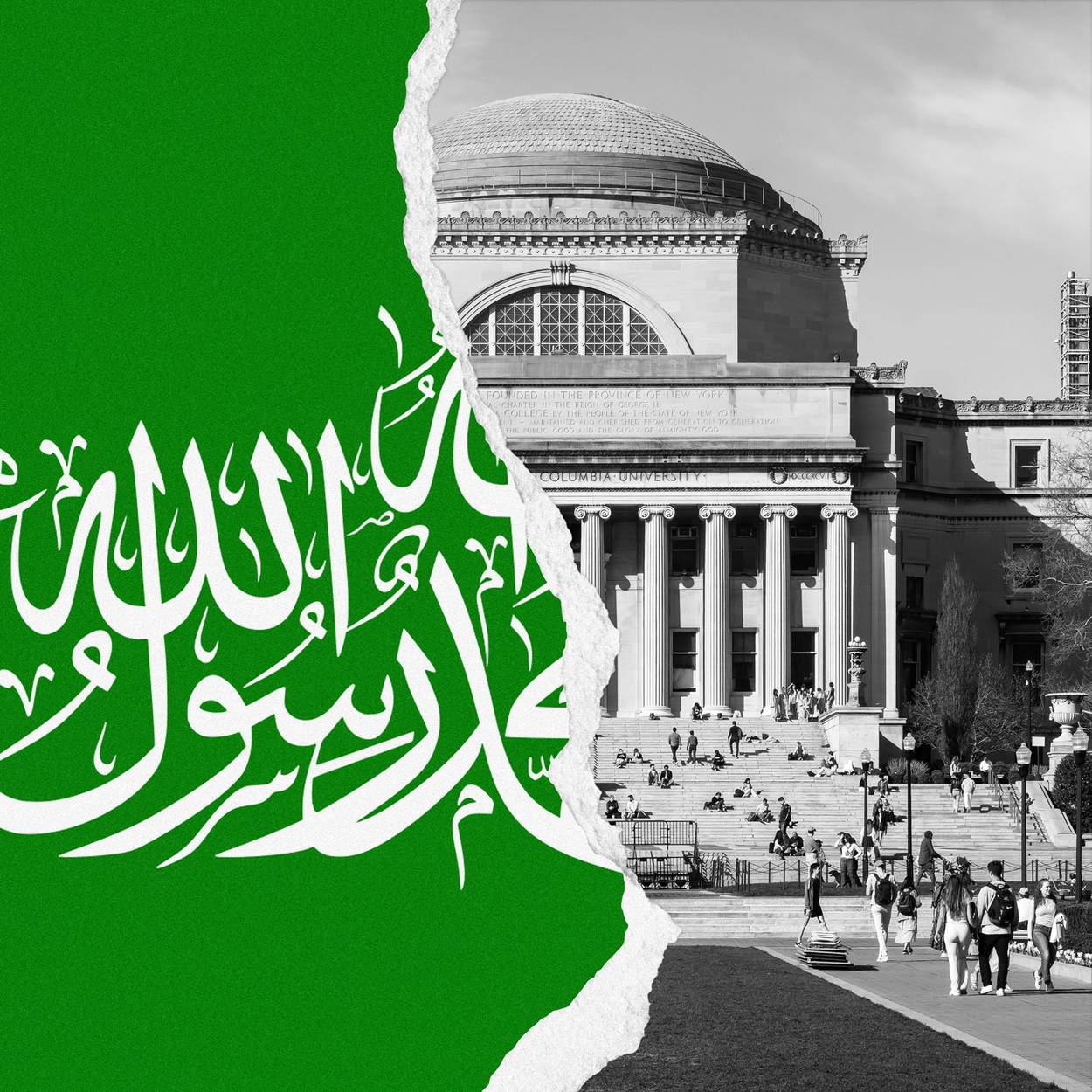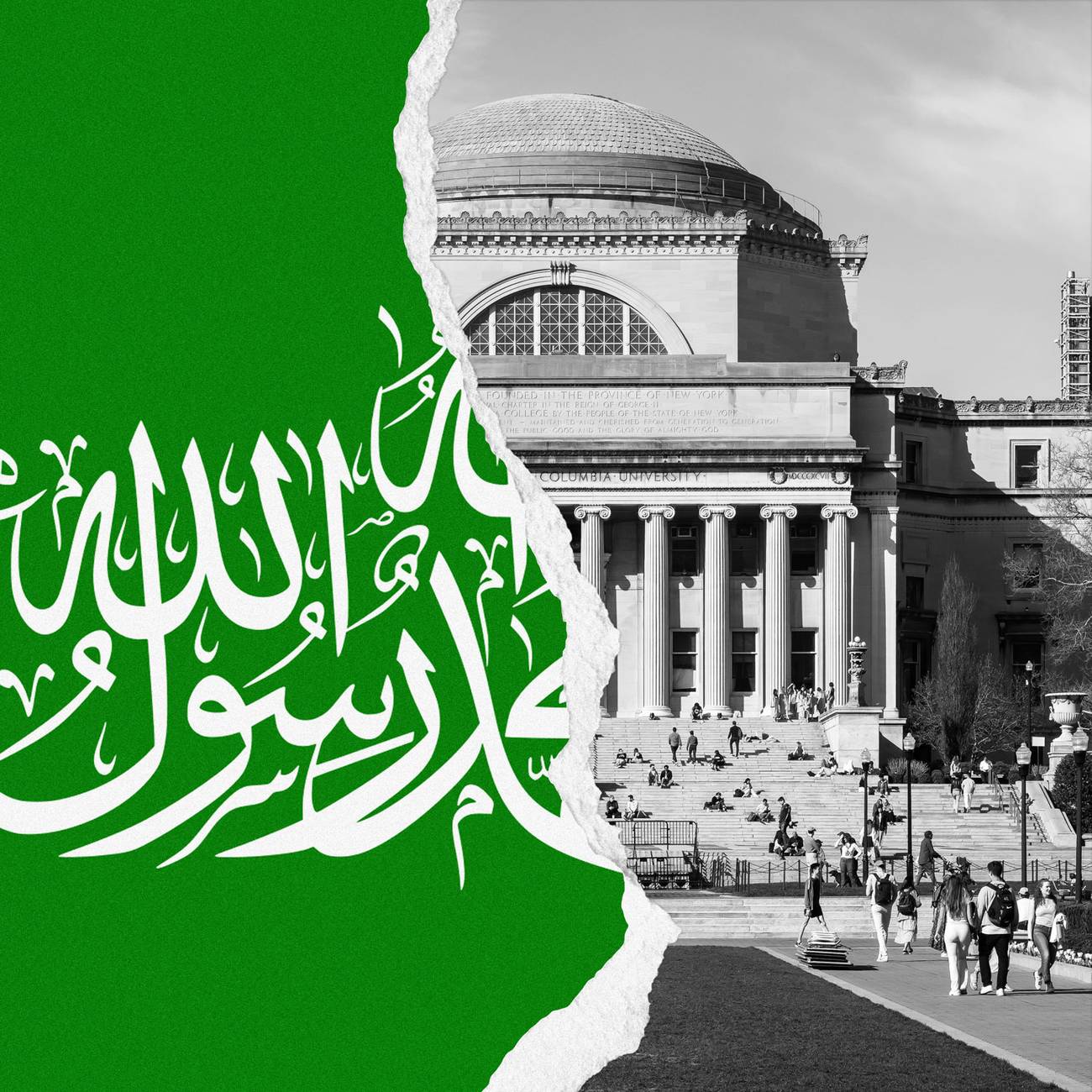What Happens When You Teach at Columbia and Reject Hamas
A professor and his wife saw their lives upended by their decision to denounce terrorism in Israel and antisemitism in America

Tablet Magazine

Tablet Magazine

Tablet Magazine

Tablet Magazine
Speaking up against Hamas’ crimes against humanity and against the student organizations that support it ruined our lives. Almost two weeks after Oct. 7, as Shai felt compelled to speak up against the antisemitic, pro-Hamas storm raging on U.S. campuses, we realized that nothing would ever be the same.
It happened suddenly and all at once. The day after giving an impassioned speech during an anti-terror vigil on Columbia’s campus, every one of Shai’s inboxes was overflowing with messages. People had seen him at his rawest and most vulnerable—heartbroken, abandoned, and betrayed—and they felt the same. Reading through thousands of missives of encouragement and commiseration from Jewish parents and students, Holocaust and Oct. 7 survivors, and concerned non-Jews from all over the world, we felt our souls cracking open to let in our people’s anxiety and grief. For the first time since the dreadful massacre, we didn’t feel completely alone.
But other messages started coming in, too. One friend blocked Yardenne on social media. Another said that speaking up against organizations who openly support Hamas was not a good look. A third, stating her discomfort with how much of our attention was devoted to the kidnapped Israeli civilians, cut ties. A close friend of Shai’s from graduate school simply stopped returning his calls.
At first, we assumed this was all a big misunderstanding. We thought that if we could only get our friends to see what our childhood under constant suicide bombings was like, they would realize the depravity of student protesters calling for another intifada. We thought that we could get our friends to realize that there is no meaningful difference between the families slaughtered on Israel’s southern border and our own families, who live just 55 miles away. We thought that if we could only give voice to our people’s pain and suffering, our friends would not so flippantly reject our lived experiences. We thought that our friends would let us grieve. We were naive and we were wrong.
As leftist, liberal Zionists, we have always made a clear distinction between the people of Palestine and the inhumane terror organizations that falsely purport to speak in their name. Our support for a two-state solution has never wavered, and to this day we remain staunchly opposed to Israel’s occupation of the West Bank, refrain from buying products manufactured beyond the 1967 armistice line, and protest any governmental policy that we see as oppressive or unjust. Surely, we thought, our seemingly liberal friends would see that we, too, deserve to be heard.
This is what we got wrong. We failed to realize that for many in our “progressive” circle, being a liberal Israeli just wasn’t good enough. If we had kept quiet, they might have been willing to accept us as equals. If we apologized for Israel’s existence, they might have even given us some extra points. But exposing Hamas’ atrocities and the support it was gaining among young Americans? Naming the kidnapped children and begging the world to help bring them home? Giving voice to the Israeli victims of mass rape by Hamas terrorists? For our friends, our refusal to apologize for Israel’s existence simply deemed us intolerable. Their minds were already made up. They wouldn’t even let us plead our case.
It took us a while to understand it, but once we did everything started making sense: Our friends did not have a problem with our politics, they had a problem with our identity. Our friends were willing to overlook the fact that we were Jewish Israelis, but only so long as we shut up about it. For many in our “enlightened” circle, our ethnic and national identity was an unfortunate accident, something to apologize for rather than take pride in. We failed to realize that for many, our people’s continued existence was not a high priority.
While some friends offered support and empathy, the love from others turned out to be conditional at best. Colleagues ghosted us. Some have actively turned against us. Far from bloodthirsty or belligerent, the fact that we refused to quiver in the face of those who call for our demise was not something they could live with. They wanted us to be silent and weak and apologetic—the perfect Jewish victim. Standing up for ourselves made us unacceptable.
We failed to realize that for many in our ‘progressive’ circle, being a liberal Israeli just wasn’t good enough.
We did not see this coming. But now that we’ve seen it, we will never unsee it. We will never forget the gaslighting. We will never forget the denial of our trauma. We will never forget the victim-blaming and the way they had us believing that advocating for our own lives was an injustice to others. Some things are just not so easy to brush off.
As Shai continued to call out Columbia University’s moral cowardice, we began to receive another kind of hatred—the public, faceless kind so easy to mete out from behind a keyboard. Every morning, as we sift through the hundreds of hateful emails and online comments that Shai receives each day, we are reminded that life will never be the same again. From memes of rats with big, curving noses to threats of physical violence, from the publicizing of our personal information to the dissemination of egregious lies about Shai and his parents, from unsubstantiated criticism of Shai’s professional conduct to conspiratorial antisemitic rants, we believe we’ve seen it all. Shai is regularly called a Nazi, a Zionist pig, a genocidal baby murderer, a kike. Thousands have called for his death. While a few people get in touch privately to offer their support, almost none of our friends have dared to publicly stand by his side. Many of Shai’s colleagues are regularly cc’d on these hateful missives. None have spoken up.
Our pain is miniscule compared to that of the thousands of Israelis and Palestinians who have lost their loved ones on and since Oct. 7. Our pain is miniscule compared to that of the 134 kidnapped civilians and their heartbroken families. Our pain is miniscule compared to that of the hundreds of thousands of displaced Palestinians in Gaza and the hundreds of thousands of displaced Israelis from its northern and southern regions. And yet, our pain is real, and the inability of some of our closest friends to accept the legitimacy of our pain only adds more heartache.
It took us a while to understand it, but once we did everything started making sense: Our friends did not have a problem with our politics, they had a problem with our identity.
But while speaking up may have ruined our lives, it also made them so much better.
Since Shai spoke out against the support for terror on U.S. campuses, a number of friends and acquaintances have made a point of being there for us. We may not see eye to eye about everything, but we agree on the fundamentals. We agree that both Israelis and Palestinians have a right to exist. We agree that Hamas is the problem, not the solution. We agree that the status quo will have to change. And we agree that rape is never, ever, ever OK. These are the people who will never turn against us. These are the people who will always show up.
We have also made new friends—activists, protesters, and true warriors of justice. Vocal and brave Jewish and non-Jewish allies who, like us, have put their lives, jobs, and reputations on the line. Like us, many of them have lost people whom they’d believed were their friends. Like us, many of them are frightened and heartbroken and worried. But we have found each other, and we have each other’s backs. Our new community accepts us for who we are, not for who it wants us to be. Together, we are working toward making a real difference.
We want the war to end, the hostages to return home, and for peace to become a tangible goal, not an empty election slogan. We want to strengthen the State of Israel as a liberal, democratic haven for Jewish people everywhere. We want the Jewish people to be recognized as a minority worthy of protection and celebration. We want the world to show up for us in the same way that we have repeatedly showed up, and will continue to show up, for so many others.
We may have lost some friends, but we gained something much more valuable: a tribe. Sabras and diasporic, religious and secular, left and right, Mizrahi and Ashkenazi, gay and straight, we are all coming together as Jews. We all share a deep understanding that has become impossible to ignore since Oct. 7: We are part of one big family, and we are all in this together. Whatever happens and despite our differences, as long as we refuse to be silenced and remain united, we will get through this. We always do.
Shai Davidai is an Assistant Professor of Management at Columbia Business School.
Yardenne Greenspan is a writer and Hebrew translator from Tel Aviv.